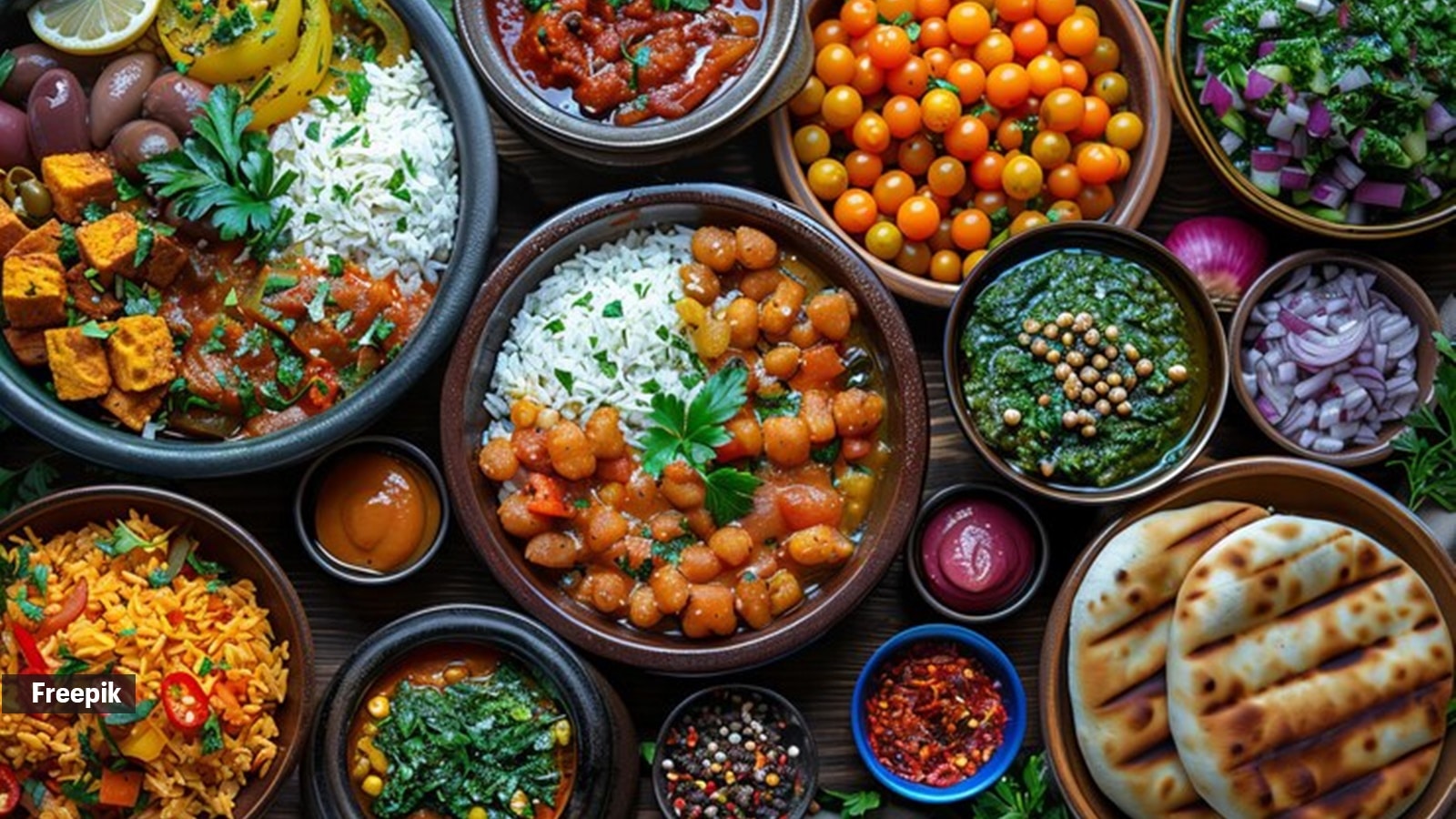📣 For more lifestyle news, click here to join our WhatsApp Channel and also follow us on Instagram
‘What I and Virat eat is extensive, expensive right now’: Sunil Chhetri offers nutritional insights for aspiring vegetarian professional athletes
While discussing his own dietary practices, Sunil Chhetri highlighted that excelling at a top level in sports requires a well-thought-out and nutrient-rich diet.
 Sunil Chhetri discusses the challenges of maintaining a vegetarian diet (Source: Instagram/Sunil Chhetri)
Sunil Chhetri discusses the challenges of maintaining a vegetarian diet (Source: Instagram/Sunil Chhetri)Sunil Chhetri, one of India’s most celebrated footballers, recently opened up about the challenges of maintaining a vegetarian diet as a professional athlete.
While discussing his dietary practices, Chhetri highlighted that excelling at a top level in sports requires a well-thought-out and nutrient-rich diet. When asked if he encourages children to play sports while observing a vegetarian diet, the former national team captain mentioned that simple meals are insufficient for the demands of intense training and competition.
“So, why I don’t talk about being vegetarian is for a single reason. Do not think that you can play by eating only, roti, onion, and lentils. And this is what generally comes to people’s minds. The first thing people ask is, ‘Where will we get protein from?’ You already know the person has no knowledge or lack of knowledge,” he said.
Chhetri continued, “So, people like Virat (Kohli) and me, have played for at least six years at the top level, physically, being vegetarian. So, that myth that vegetarians can’t play has been debunked. But what I and Virat eat is extensive, expensive right now… and it’s not easy to bring on the table.” He stressed that their access to chefs and nutritionists helps them create extensive and balanced meals. “We eat a lot. We are really fortunate we’ve got chefs, we’ve got nutritionists (sic).”
His diet consists of a variety of foods, including two to three types of vegetables, seeds, red rice, cereal, quinoa, salad, nuts, and fruits like pomegranate.
Despite the high costs of such diets, he emphasised that Indians have many affordable and nutritious food options, like ragi, idli, and red rice, that can be incorporated into a healthy lifestyle.
 Include tofu, almonds, and leafy greens for calcium intake. (Source: Freepik)
Include tofu, almonds, and leafy greens for calcium intake. (Source: Freepik)
Key nutritional challenges vegetarian athletes face and how to address them
According to Kanikka Malhotra, consultant dietician and certified diabetes educator, “Vegetarian athletes face several nutritional challenges, primarily related to protein, iron, vitamin B12, calcium, and omega-3 fatty acids.”
To address these issues without relying on expensive ingredients, she says that they can focus on:
Diverse Plant Proteins: Incorporate beans, lentils, chickpeas, quinoa, and whole grains to meet protein needs.
Iron Sources: Consume iron-rich foods like green leafy vegetables, dates, and fortied cereals, pairing them with vitamin C sources (e.g., citrus fruits) to enhance absorption.Cooking food in iron utensils will also help.
Vitamin B12: Use fortified foods such as plant milks and cereals or consider supplements.
Calcium: Include tofu, almonds, and leafy greens for calcium intake.
Omega-3 Fatty Acids: Opt for axseeds, chia seeds, and walnuts to boost omega-3 levels.
How can young, aspiring athletes design a balanced vegetarian diet to fuel their performance?
Malhotra says, “By emphasising whole foods and diversity, young, aspiring athletes can create a vegetarian diet that is balanced. To satisfy their protein requirements, they ought to incorporate protein sources such as chickpeas, lentils, tofu, and dairy products. For long-lasting energy, opt for whole grains like brown rice, quinoa, and whole wheat bread.”
To guarantee sufficient vitamins and minerals, she adds, it’s crucial to include a diverse range of fruits and vegetables, giving priority to in-season products. Nuts, seeds, and avocados provide healthy fats that are vital for general well-being. “Finally, their performance will be supported by drinking lots of water and thinking about electrolyte-rich options like smoothies or coconut water. Meal planning in advance helps maximise athletic performance and preserve equilibrium.”
📣 For more lifestyle news, click here to join our WhatsApp Channel and also follow us on Instagram
Photos





- 01
- 02
- 03
- 04
- 05





















